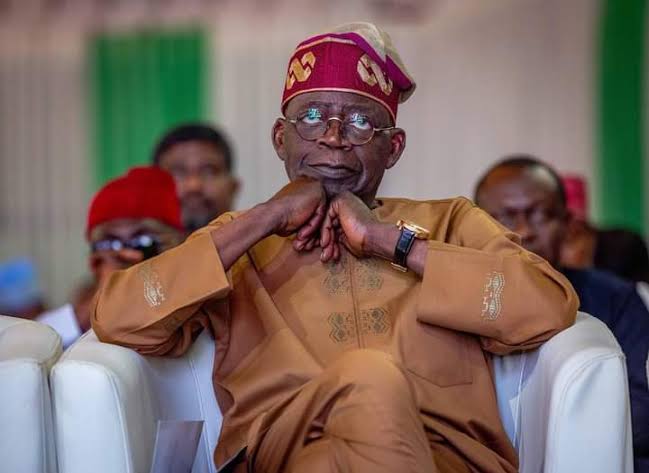ETHNIC, sectional, religious, political and economic interests are likely to define the administration of President Bola Tinubu if it accentuates rather than de-emphasize the primeval vices.
Yet, a critical issue for the new government is trust deficit that pervades the landscape – due to failure of past leaders to translate promises into tangible results, to alleviate the suffering of the people.
Thus, the citizens have grown incresingly sceptical, and untrusting of latter-day fix-all, cure-all advocates, no matter the likelihood of their sincerity.
Haven’t Nigerians seen magic wand-waving “messiahs” turning into mere managers that couldn’t deliver basic necessities of life?

Whereas the biblical King Rehoboam told the people of Israel that: “….My father made your yoke heavy, but I will add to your yoke; my father chastised you with whips, but I will chastise you with scorpions” (1 Kings 12:14 ASV).
No Nigerian politician (or ‘Militrician’) had ever promised to increase the citizens’ burden, nor sting them with scorpions rather than with whips.
But once in power – either via the ballot or bullet – they abandon promises made at campaign manifestos, or in coup broadcasts.
The grandiose “Saviour, deliverer, rescurer” of yesterday becomes today’s tormentor that initiates policies to favour the minority elite, and disfavour the majority at the bottom rung of the society.
Since the return of democracy in 1999, all the pesidents: Olusegun Obasanjo (1999-2007), Umaru Yar’Adua (2007-2010), Goodluck Jonathan (2010-2015), and Muhammadu Buhari (2015-2023), pledged to turn Nigeria into an earthly paradise.
They each gave the assurance of abundant and affordable food, fuel, electricity, housing, transportation, healthcare, education, and value-added local production, to ensure millions of jobs for the youths.
But those promises ended in pipedreams, with each president (except Yar’Adua, who spent barely three years before he died) leaving the stage worse than he met it.
To the extent that Nigeria – the largest economy in Africa – is today synonymous with the worst in many human and development indices, continentally and globally.
Notwithstanding inadequate and inaccurate statistics, Nigeria is associated with negative labelling, such as: “The Poverty Capital of the World” (with over 133 million below the poverty line); “The Darkness Capital of Africa” (with less than 3,000 mega watts of power for over 223 million population); “The Most Terrorised Country in Africa (with terrorists and bandits operating in Nigeria among the Top 10 deadliest in the world); “The Highest Fuel Importer among OPEC Countries” (despite being the Sixth Largest Oil Producer); “The Highest Importer of Generating Sets in Africa (due to inadequate power supply); and “Among the Top Four Highest Out-of-school Children in the World” (amid a glut in human capital and natural resources).
These constitute the unenviable legacy that Tinubu’s administration inherited from the Buhari government.
Tinubu played major roles in the formation of the All Progressives Congress (APC) in 2013, the emergence of President Buhari in 2015and his re-election in 2019.
With no post in the Buhari government, Tinubu labeled himself “National Leader of APC.” Yet, he influenced the progressive bent of the APC manifesto, led the campaigns on the policies, and vouched for Buhari to deliver if elected in 2015 and 2019.
Nigerians bought into the sweet-coated promises by Tinubu on behalf of Buhari and the APC that dubbed the Jonathan government “clueless” on its alleged lacklustre performance.
This is why Tinubu hugely shares in the blame of Buhari’s reported below-par execution of his agenda. And it’s the reason many doubt Tinubu’s boast: “I’m a doer, rate me on my achievements as Governor of Lagos State” (1999-2007).
Nigerians are quick to point to Tinubu’s pledge to continue with Buhari’s policies that most attribute to the untold hardship in the country.
Tinubu’s edict on fuel subsidy at his inauguration on May 29, which shot up pump price of petrol above 200% provided fodder for critics who linked it to Buhari’s alleged “anti-people” policies.
Consider the 2022 Naira redesign policy of the Central Bank of Nigeria (CBN), which confiscated accounts of millions of Nigerians, who begged, and protested, but couldn’t get tokens of their money at ATMs or across the counters.
Nigerians had never witnessed such deliberate government policies to punish its citizens and Buhari admitted months later that he didn’t know it’d negatively impact the people so.
President Tinubu, who faulted the Naira redesign as aimed at his presidential bid, had pledged in his inaugural speech to revisit the policy under reforms in the CBN.
And on June 9, he suspended CBN governor, Godwin Emefiele, to give way to realistic reforms and investigations into the activities of the apex bank under Emefiele. The operatives of Department of State Services (DSS), have confirmed that Emefiele is in their net.
Removing the fuel subsidy will no doubt further yoke Nigerians, who had remotely endorsed, with their votes, Tinubu’s vow to discontinue the policy. Now the same voters complain and criticise the President for daring to deliver on one of his major campaign planks.
The question is: Do Nigerians want a promise keeper or breaker?
If it is the former, why the fear that Tinubu may not be different from previous leaders since 1999?
It is easy for presidents to sprung on Nigerians policies they are not contained in their manifestos, but Tinubu chose to “walk his talk.”
With the matter settled with a dialogue with labour unions on ameliorating the impact of the subsidy removal on Nigerians, let Tinubu’s critics hail him for putting his feet tin the fire for the good of Nigerians.
The President should resist pressures to reverse himself and blunt the primordial interests that strike at the heart of the nation!
Mr Ezomon, a journalist and media consultant, writes from Lagos, Nigeria.


